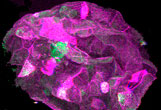 |
||||
Biodefense: Defense strategies and technologies to protect against attacks with biological agents. Involves development of diagnostics, vaccines and therapeutics to diagnose, prevent, and treat infections as well as technologies to detect potential bioweapons. Biosafety: Biological safety--safety from infectious agents or toxins. Generally refers to standards and procedures in research laboratories articulated in “Biosafety in Microbiological and Biomedical Laboratories” published by the Centers for Disease Control and the National Institutes of Health. Biosecurity: Biological security--protocols and procedures to secure biological agents. Biological agent: An organism or compound produced by a living organism that has biological effects on other organisms. Biohazard: Biological hazard--any biological substance that poses a threat to health of humans or animals. Biotechnology: Any technology that utilizes biological systems or living organisms to make or modify products for specific purposes. Biotoxin: A type of biological agent. A poison-- often used to refer to compounds produced by plants, bacteria and some animals that are highly toxic for other organisms. Bioterrorism: The use or threatened use of biological agents for the purpose of inciting terror in a population. Biowarfare: The use of biological agents in warfare. Bioweapons: Biological agents processed to be useful as weapons on the battlefield. Requires significant processing of the biological agent beyond simply growing the organism or producing the biotoxin.
|

Michael Kubisch
|
©2013 Tulane University |